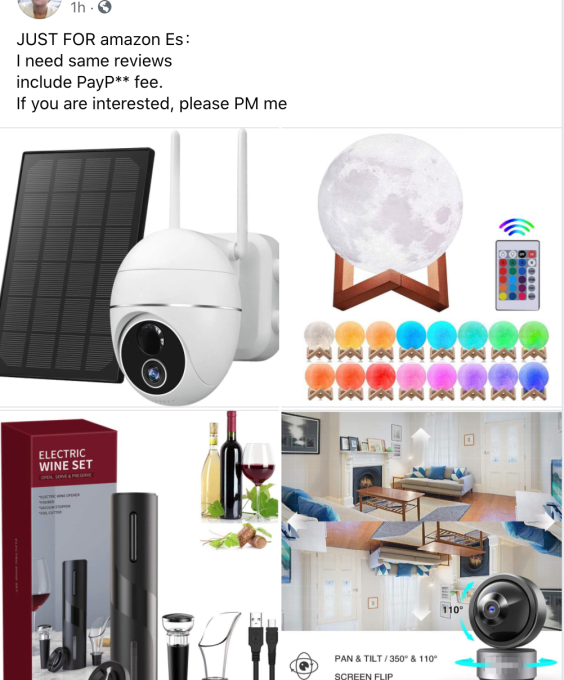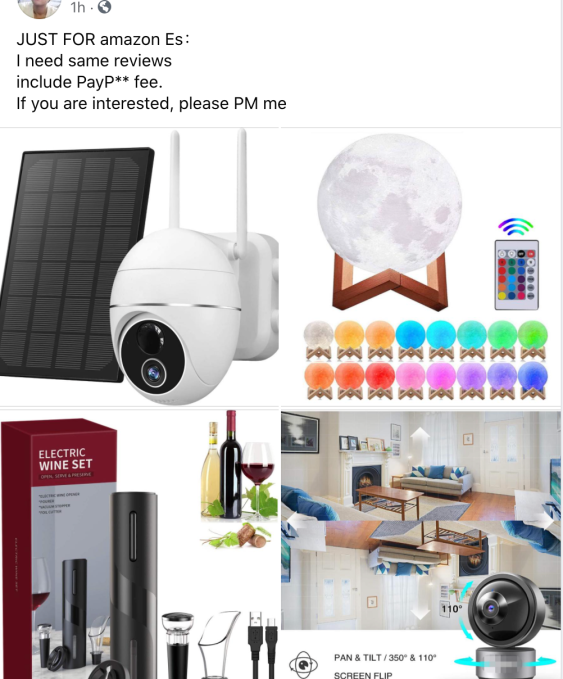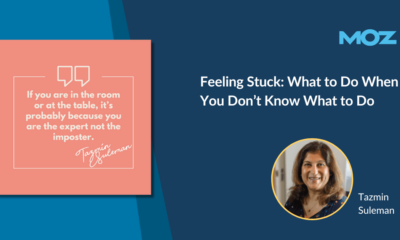Facebook takes down 16,000 groups trading fake reviews after another poke by UK’s CMA

Facebook has removed 16,000 groups that were trading fake reviews on its platform after another intervention by the UK’s Competition and Markets Authority (CMA), the regulator said today.
The CMA has been leaning on tech giants to prevent their platforms being used as thriving marketplaces for selling fake reviews since it began investigating the issue in 2018 — pressuring both eBay and Facebook to act against fake review sellers back in 2019.
The two companies pledged to do more to tackle the insidious trade last year, after coming under further pressure from the regulator — which found that Facebook-owned Instagram was also a thriving hub of fake review trades.
The latest intervention by the CMA looks considerably more substantial than last year’s action — when Facebook removed a mere 188 groups and disabled 24 user accounts. Although it’s not clear how many accounts the tech giant has banned and/or suspended this time it has removed orders of magnitude more groups. (We’ve asked.)
Update: We understand that the regulator has focused on the removal of groups trading misleading/fake reviews, rather than individual accounts — as banned or suspended users are able to create new profiles, whereas removing the group in which fake reviews are being traded is seen as a more effective way to impact and deter the activity.
Facebook was also contacted with questions but it did not answer what we asked directly, sending us this statement instead:
“We have engaged extensively with the CMA to address this issue. Fraudulent and deceptive activity is not allowed on our platforms, including offering or trading fake reviews. Our safety and security teams are continually working to help prevent these practices.”
Since the CMA has been raising the issue of fake review trading, Facebook has been repeatedly criticised for not doing enough to clean up its platforms, plural.
Today the regulator said the social media giant has made further changes to the systems it uses for “identifying, removing and preventing the trading of fake and/or misleading reviews on its platforms to ensure it is fulfilling its previous commitments”.
It’s not clear why it’s taken Facebook well over a year — and a number of high profile interventions — to dial up action against the trade in fake reviews. But the company suggested that the resources it has available to tackle the problem had been strained as a result of the COVID-19 pandemic and associated impacts, such as home working. (Facebook’s full year revenue increased in 2020 but so too did its expenses.)
According to the CMA changes Facebook has made to its system for combating traders of fake reviews include:
- suspending or banning users who are repeatedly creating Facebook groups and Instagram profiles that promote, encourage or facilitate fake and misleading reviews
- introducing new automated processes that will improve the detection and removal of this content
- making it harder for people to use Facebook’s search tools to find fake and misleading review groups and profiles on Facebook and Instagram
- putting in place dedicated processes to make sure that these changes continue to work effectively and stop the problems from reappearing
Again it’s not clear why Facebook would not have already been suspending or banning repeat offenders — at least, not if it was actually taking good faith action to genuinely quash the problem, rather than seeing if it could get away with doing the bare minimum.
Commenting in a statement, Andrea Coscelli, chief executive of the CMA, essentially makes that point, saying: “Facebook has a duty to do all it can to stop the trading of such content on its platforms. After we intervened again, the company made significant changes — but it is disappointing it has taken them over a year to fix these issues.”
“We will continue to keep a close eye on Facebook, including its Instagram business. Should we find it is failing to honour its commitments, we will not hesitate to take further action,” Coscelli added.
A quick search on Facebook’s platform for UK groups trading in fake reviews appears to return fewer obviously dubious results than when we’ve checked in on this problem in 2019 and 2020. Although the results that were returned included a number of private groups so it was not immediately possible to verify what content is being solicited from members.
We did also find a number of Facebook groups offering Amazon reviews intended for other European markets, such as France and Spain (and in one public group aimed at Amazon Spain we found someone offering a “fee” via PayPal for a review; see below screengrab) — suggesting Facebook isn’t applying the same level of attention to tackling fake reviews that are being traded by users in markets where it’s faced fewer regulatory pokes than it has in the UK.

Screengrab: TechCrunch
Facebook Faces Yet Another Outage: Platform Encounters Technical Issues Again

Uppdated: It seems that today’s issues with Facebook haven’t affected as many users as the last time. A smaller group of people appears to be impacted this time around, which is a relief compared to the larger incident before. Nevertheless, it’s still frustrating for those affected, and hopefully, the issues will be resolved soon by the Facebook team.
Facebook had another problem today (March 20, 2024). According to Downdetector, a website that shows when other websites are not working, many people had trouble using Facebook.
This isn’t the first time Facebook has had issues. Just a little while ago, there was another problem that stopped people from using the site. Today, when people tried to use Facebook, it didn’t work like it should. People couldn’t see their friends’ posts, and sometimes the website wouldn’t even load.
Downdetector, which watches out for problems on websites, showed that lots of people were having trouble with Facebook. People from all over the world said they couldn’t use the site, and they were not happy about it.
When websites like Facebook have problems, it affects a lot of people. It’s not just about not being able to see posts or chat with friends. It can also impact businesses that use Facebook to reach customers.
Since Facebook owns Messenger and Instagram, the problems with Facebook also meant that people had trouble using these apps. It made the situation even more frustrating for many users, who rely on these apps to stay connected with others.
During this recent problem, one thing is obvious: the internet is always changing, and even big websites like Facebook can have problems. While people wait for Facebook to fix the issue, it shows us how easily things online can go wrong. It’s a good reminder that we should have backup plans for staying connected online, just in case something like this happens again.
Christian family goes in hiding after being cleared of blasphemy

LAHORE, Pakistan — A court in Pakistan granted bail to a Christian falsely charged with blasphemy, but he and his family have separated and gone into hiding amid threats to their lives, sources said.
Haroon Shahzad, 45, was released from Sargodha District Jail on Nov. 15, said his attorney, Aneeqa Maria. Shahzad was charged with blasphemy on June 30 after posting Bible verses on Facebook that infuriated Muslims, causing dozens of Christian families in Chak 49 Shumaali, near Sargodha in Punjab Province, to flee their homes.
Lahore High Court Judge Ali Baqir Najfi granted bail on Nov. 6, but the decision and his release on Nov. 15 were not made public until now due to security fears for his life, Maria said.
Shahzad told Morning Star News by telephone from an undisclosed location that the false accusation has changed his family’s lives forever.
“My family has been on the run from the time I was implicated in this false charge and arrested by the police under mob pressure,” Shahzad told Morning Star News. “My eldest daughter had just started her second year in college, but it’s been more than four months now that she hasn’t been able to return to her institution. My other children are also unable to resume their education as my family is compelled to change their location after 15-20 days as a security precaution.”
Though he was not tortured during incarceration, he said, the pain of being away from his family and thinking about their well-being and safety gave him countless sleepless nights.
“All of this is due to the fact that the complainant, Imran Ladhar, has widely shared my photo on social media and declared me liable for death for alleged blasphemy,” he said in a choked voice. “As soon as Ladhar heard about my bail, he and his accomplices started gathering people in the village and incited them against me and my family. He’s trying his best to ensure that we are never able to go back to the village.”
Shahzad has met with his family only once since his release on bail, and they are unable to return to their village in the foreseeable future, he said.
“We are not together,” he told Morning Star News. “They are living at a relative’s house while I’m taking refuge elsewhere. I don’t know when this agonizing situation will come to an end.”
The Christian said the complainant, said to be a member of Islamist extremist party Tehreek-e-Labbaik Pakistan and also allegedly connected with banned terrorist group Lashkar-e-Jhangvi, filed the charge because of a grudge. Shahzad said he and his family had obtained valuable government land and allotted it for construction of a church building, and Ladhar and others had filed multiple cases against the allotment and lost all of them after a four-year legal battle.
“Another probable reason for Ladhar’s jealousy could be that we were financially better off than most Christian families of the village,” he said. “I was running a successful paint business in Sargodha city, but that too has shut down due to this case.”
Regarding the social media post, Shahzad said he had no intention of hurting Muslim sentiments by sharing the biblical verse on his Facebook page.
“I posted the verse a week before Eid Al Adha [Feast of the Sacrifice] but I had no idea that it would be used to target me and my family,” he said. “In fact, when I came to know that Ladhar was provoking the villagers against me, I deleted the post and decided to meet the village elders to explain my position.”
The village elders were already influenced by Ladhar and refused to listen to him, Shahzad said.
“I was left with no option but to flee the village when I heard that Ladhar was amassing a mob to attack me,” he said.
Shahzad pleaded with government authorities for justice, saying he should not be punished for sharing a verse from the Bible that in no way constituted blasphemy.
Similar to other cases
Shahzad’s attorney, Maria, told Morning Star News that events in Shahzad’s case were similar to other blasphemy cases filed against Christians.
“Defective investigation, mala fide on the part of the police and complainant, violent protests against the accused persons and threats to them and their families, forcing their displacement from their ancestral areas, have become hallmarks of all blasphemy allegations in Pakistan,” said Maria, head of The Voice Society, a Christian paralegal organization.
She said that the case filed against Shahzad was gross violation of Section 196 of the Criminal Procedure Code (CrPC), which states that police cannot register a case under the Section 295-A blasphemy statute against a private citizen without the approval of the provincial government or federal agencies.
Maria added that Shahzad and his family have continued to suffer even though there was no evidence of blasphemy.
“The social stigma attached with a blasphemy accusation will likely have a long-lasting impact on their lives, whereas his accuser, Imran Ladhar, would not have to face any consequence of his false accusation,” she said.
The judge who granted bail noted that Shahzad was charged with blasphemy under Section 295-A, which is a non-cognizable offense, and Section 298, which is bailable. The judge also noted that police had not submitted the forensic report of Shahzad’s cell phone and said evidence was required to prove that the social media was blasphemous, according to Maria.
Bail was set at 100,000 Pakistani rupees (US $350) and two personal sureties, and the judge ordered police to further investigate, she said.
Shahzad, a paint contractor, on June 29 posted on his Facebook page 1 Cor. 10:18-21 regarding food sacrificed to idols, as Muslims were beginning the four-day festival of Eid al-Adha, which involves slaughtering an animal and sharing the meat.
A Muslim villager took a screenshot of the post, sent it to local social media groups and accused Shahzad of likening Muslims to pagans and disrespecting the Abrahamic tradition of animal sacrifice.
Though Shahzad made no comment in the post, inflammatory or otherwise, the situation became tense after Friday prayers when announcements were made from mosque loudspeakers telling people to gather for a protest, family sources previously told Morning Star News.
Fearing violence as mobs grew in the village, most Christian families fled their homes, leaving everything behind.
In a bid to restore order, the police registered a case against Shahzad under Sections 295-A and 298. Section 295-A relates to “deliberate and malicious acts intended to outrage religious feelings of any class by insulting its religion or religious beliefs” and is punishable with imprisonment of up to 10 years and fine, or both. Section 298 prescribes up to one year in prison and a fine, or both, for hurting religious sentiments.
Pakistan ranked seventh on Open Doors’ 2023 World Watch List of the most difficult places to be a Christian, up from eighth the previous year.
Morning Star News is the only independent news service focusing exclusively on the persecution of Christians. The nonprofit’s mission is to provide complete, reliable, even-handed news in order to empower those in the free world to help persecuted Christians, and to encourage persecuted Christians by informing them that they are not alone in their suffering.
Free Religious Freedom Updates
Join thousands of others to get the FREEDOM POST newsletter for free, sent twice a week from The Christian Post.
Individual + Team Stats: Hornets vs. Timberwolves
CHARLOTTE HORNETS MINNESOTA TIMBERWOLVES You can follow us for future coverage by liking us on Facebook & following us on X: Facebook – All Hornets X – …
Source link
-

 WORDPRESS6 days ago
WORDPRESS6 days ago10 WordPress Influencers to Follow in 2024 – WordPress.com News
-

 WORDPRESS7 days ago
WORDPRESS7 days ago8 Best WordPress Migration Services (Compared)
-

 MARKETING6 days ago
MARKETING6 days agoFeeling Stuck: What to Do When You Don’t Know What to Do
-

 SEARCHENGINES7 days ago
SEARCHENGINES7 days agoGoogle Image Search Adds Pixel Level Object Segmentation Animation
-

 PPC5 days ago
PPC5 days agoA History of Google AdWords and Google Ads: Revolutionizing Digital Advertising & Marketing Since 2000
-

 SEARCHENGINES5 days ago
SEARCHENGINES5 days agoMore Google March 2024 Core Update Ranking Volatility
-

 PPC5 days ago
PPC5 days agoCompetitor Monitoring: 7 ways to keep watch on the competition
-

 PPC5 days ago
PPC5 days ago31 Ready-to-Go Mother’s Day Messages for Social Media, Email, & More












